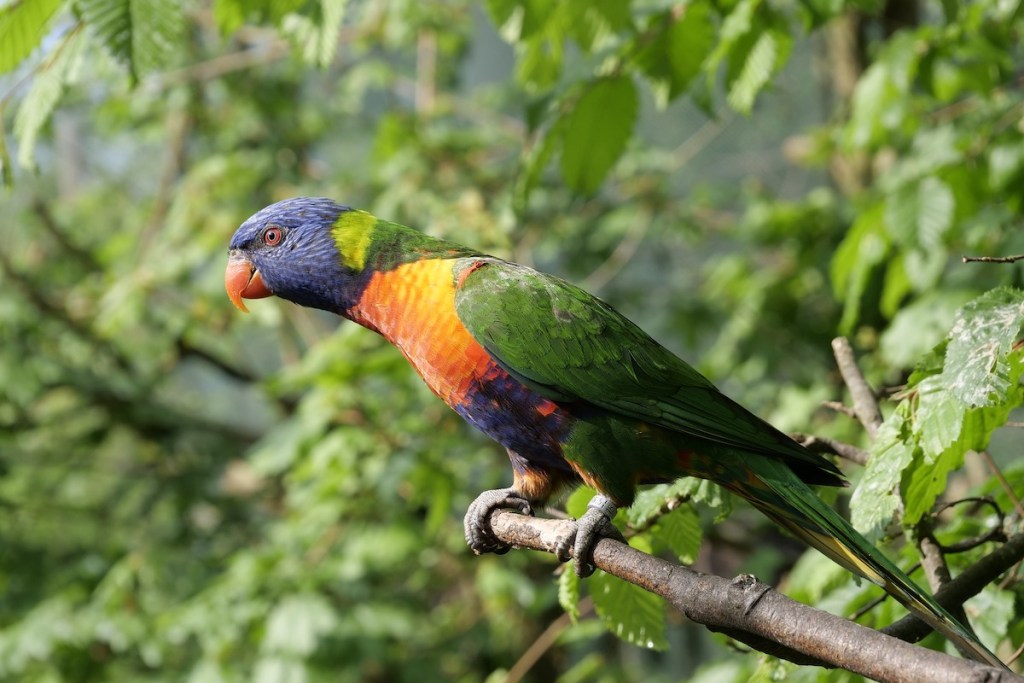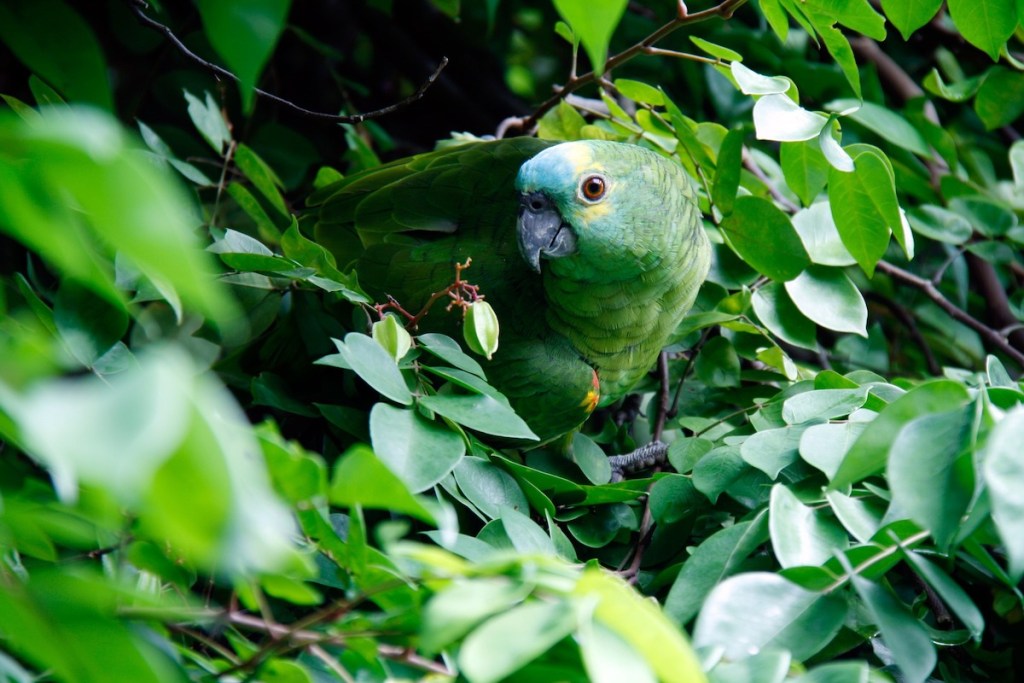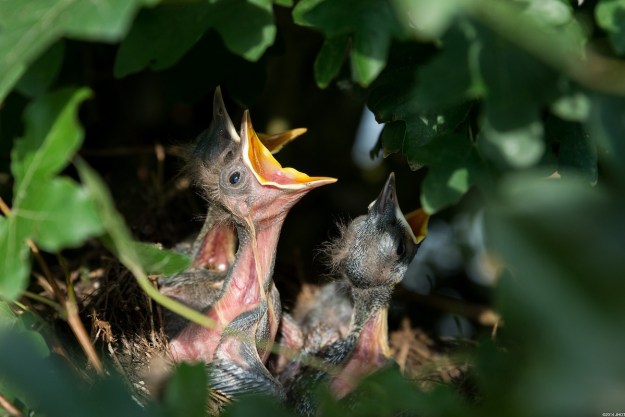When it comes to a flyaway bird, time is of the essence. You need to act quickly to try and get your sweet pet back into a safe environment. After all, the great outdoors is full of predators, cars, and bad weather that will quickly have your bird wondering why he ever left at all. That’s good news, though, as it means he will want to come home just as much as you will be trying to coax him. Food, a soft perch, and warmth await him. But overeagerness can also scare off your feathered friend, so you need to approach his rescue attempt carefully. If you find your pet bird flying away, try these techniques to return him safe and sound.

Bringing the cage near the bird
It’s important not to chase your bird since you may spook him even though he knows you just want to help. The outdoors can be a scary place for a bird who’s gotten used to your quiet and peaceful house. That means you might startle him in this situation. Instead, take his cage outside right away and set it down near where you’ve spotted him or in the vicinity of your yard or porch. Then back away slowly and wait for him to enter. Some cages have internal springs that allow you to secure him inside once he climbs in. Otherwise, sit back and wait for this cutie to hop back in, and then shut the door quickly without scaring him into retreat.
Bribing him with treats
In addition to his cage, you want to break out his absolute favorite snack. Find whatever will get his attention best and take them outside. Leave your door open if at all possible during this time in case your pet finds it easier to slip back into your house. Place treats in the cage, on the porch, or in the yard – wherever he might see them and decide it’s worth it to come home. If you see him hopping around, casually thinking about returning, this might help seal the deal. However, you don’t want to leave the treats unattended for long, as you might wind up attracting unwanted animals (like mice). Bring any food inside at night.
Using familiar sounds
Many birds don’t really mean to escape at all and sometimes struggle to find their way home even when they want to. Birds use sounds to communicate with each other and will often respond to your calls as well. Some very intelligent birds can learn their names and how to respond to calls. It’s good to teach them to come when they’re called, if possible so that they will automatically return to you if they ever get out. Calling will also serve as a homing beacon to draw your sweet bird to you and help him find your location if he’s gotten himself lost. He’s maybe forgotten a few of his ancestors’ tricks to navigating home.

Checking local hotspots
What would be the coolest place in town if you had wings and ate seed? Think like your bird while scanning the area for enticing locations. Note any trees, especially ones that bear fruit or seed, to determine prime sites where he might find food or a safe place to rest his head. A neighbor might also have an enticing object: a bird feeder. Your pet bird is used to two square meals per day that don’t take any work. A local feeder might look like an all-you-can-eat buffet. Lastly, your sweet pet probably misses people, not just you but the company of humans in general. Houses and yards might seem inviting to an escaped little bird.
Making phone calls
If you aren’t able to recover your bird right away, reach out to everyone who might be able to help. That includes your vet, animal control or rescue organizations, and social media. Put up flyers in your immediate vicinity and pass them out to everyone you know in the area. Be clear that if anyone spots him, to call you and not rush after the bird, which will likely cause him to flee. Many cities and towns have groups online (try Google or Facebook first) that will get the word out about your little creature. Make sure to include the bird’s name, photos, and any distinguishing markings that will help to identify him. Post on your pages too, and get your friends in the area to share as much as possible. You never know who might have seen him.
Don’t panic
The key here is to work quickly and efficiently to beckon your bird back home. Hopefully, your pet will get tired of freedom and return to the nest straight off. Some owners find that they see their bird in and around their home for a few days but can never quite get him to enter the house. Point your pet or security cam outside to help you spot him even when you cannot always be around. Soon, you’ll have him back home, safe, sound, and again begging for treats.
Editors' Recommendations
- Wondering what sharks are ideal for your home aquarium? These sharks fit right in
- Best reptile pets: These are the 5 most affectionate reptiles you can welcome into your home
- Is buying a baby turtle illegal? Here is how to bring home this reptile legally and ethically
- Why do birds lose their feathers? Here’s when to worry
- Why do birds bob their heads? The answer is pretty complex




